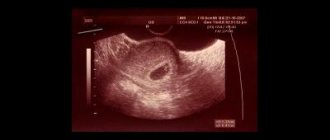In vitro fertilization (IVF) is a method of fertilizing an egg outside the body. Often at the everyday level and in some documents it is incorrectly called “ artificial insemination .” This name appeared as a result of an incorrect, illiterate translation of the English term artificial insemination , which means the introduction of sperm into the genital tract of “female individuals.” artificial insemination has become established in veterinary medicine . In medicine, “ artificial insemination ” is one of the methods to overcome some forms of infertility.
Fertilization is the fusion of female and male chromosome sets . Fertilization remains a mystery; it always occurs naturally, beyond human control, regardless of the “meeting place” of sperm and egg—whether in the woman’s genital tract or outside the body. Even in the case of ICSI (injection of sperm into the cytoplasm of the egg), fertilization - the fusion of chromosomes - occurs naturally without human intervention. So artificial insemination does not exist at all.
IVF has been used in the world practice of infertility treatment for quite a long time - since 1978. One of the first clinics in Russia to begin treating infertility using in vitro fertilization was our International Center for Reproductive Medicine (ICRM) in St. Petersburg. The frequency of pregnancy as a result of IVF, as well as other indicators of effectiveness in the ICRM are given on our website.
Indications
- decreased fertility;
- if conservative methods did not help;
- the desire of the married couple;
- for a girl without a partner using donor programs;
- violation of the patency of the oviducts (fallopian tubes);
- amputation of appendages;
- the likelihood of conception with IVF is higher than with other options;
- after preliminary treatment of endometriosis;
- disorders of the menstrual cycle that cannot be corrected and do not allow one to become pregnant;
- ineffectiveness of artificial insemination;
- lack of menstrual flow for some reason (anovulation);
- infertility of unknown pathogenesis (idiopathic);
- problems with spermatogenesis in men, poor quality of seminal fluid, ejaculatory dysfunction.
When is pregnancy confirmed?
The fact of conception can be confirmed after 14 days.
Pregnancy is determined using a special test that measures the content of the hCG hormone in the blood serum 10-14 days after the transfer. This hormone is synthesized only by embryonic cells. The first ultrasound is recommended to be performed a week after the day of the hCG test.
Important! In the future, the woman is also observed by specialists. If pregnancy occurs, it is supported by medications prescribed by the doctor. If the pregnancy test is negative, all medications must be stopped. Menstruation will come, which may differ from normal menstrual flow.
Contraindications to IVF
- gestation and childbirth pose a threat to the health or life of the patient and her child;
- serious mental disorders;
- severe somatic diseases;
- decompensated failure (pulmonary, cardiac, vascular, renal, liver);
- diabetes mellitus at the stage of decompensation;
- cancerous tumors of any location;
- benign uterine neoplasia requiring surgical intervention;
- deformations of the uterine cavity, congenital anomalies of the pelvic organs that interfere with pregnancy;
- pathologies of the genital area that make embryonic implantation impossible;
- acute infections, exacerbation of chronic ones.
There are no contraindications for men. After eliminating the relative restrictions, the medical council decides whether in vitro fertilization is possible for a particular case. In the Russian Federation, according to the law, married couples, including those not in a registered marriage and single women, are allowed to resort to IVF.
History: how IVF developed in Ukraine and the world
Before the landmark event in the world of reproductive medicine, the birth of the first IVF child, experiments on embryo cultivation “in vitro” with its subsequent transfer were carried out only on mammals. As a result of one such experiment and thanks to the talent of the Chinese scientist Ming Chue Chang, a rabbit was born in 1959, proving with its appearance that artificial insemination is a promising new reality.
And exactly 19 years later, in 1978, two fathers of reproductive medicine - gynecologist Patrick Steptoe and biologist Robert Edwards, from Great Britain, performed the miracle of the birth of the first human in vitro - Louise Brown.
The progenitor of reproductive medicine in Ukraine was the Kharkov scientist, academician, doctor of medical sciences, professor Valentin Ivanovich Grishchenko. He was the first in Ukraine to organize a human reproduction laboratory in 1983 (later it received the well-known name “Implant”) and began to use assisted reproductive technologies. In 1990, for the first time in Ukraine, under his leadership, successful in vitro fertilization was carried out, after which an IVF girl, Katya, was born in 1991.
The work of the founder of IVF in Ukraine is continued today by his grandchildren - Nikolai Grigorievich Grishchenko and Valentin Yuryevich Parashchuk. Thanks to the talent and professionalism of the Grishchenko medical dynasty, today the IVF clinic , named in honor of Valentin Ivanovich - “Clinic of Academician Grishchenko”, is successfully operating.
What are the types of IVF programs?
The AltraVita clinic offers patients comprehensive IVF programs. The programs are designed in such a way that the patient has the opportunity to receive a full range of services within the framework of one protocol. The variety of programs we offer allows patients to choose the most suitable one, taking into account their reproductive health capabilities, the recommendations of their attending physician, and get the expected result - a long-awaited pregnancy.
We value our reputation, so each IVF protocol is not just about precise execution of the procedure, but about working with patients, an individual approach, empathy and joy after successful IVF.
Basic IVF
- The gold standard for stimulating ovulation in women entering an in vitro fertilization protocol. The program used at the AltraVita clinic is convenient for all patients. It can be used in its original form, or modified by adding the necessary procedures.
IVF under compulsory medical insurance
- You can undergo IVF treatment within the framework of the compulsory health insurance program, while we still guarantee you an individual approach and high-quality services.
With donor oocytes
- Our assistants will help you select a donor. When choosing, you can take into account external features, blood type, height, weight, eye color, hair color, age, education, character. All donors whose services our clinic uses are examined according to the standards of the Russian Federation, healthy, without phenotypic features. Following the rules of anonymity, we do not provide a photo of the donor, but only provide detailed information regarding external data, character, and even zodiac sign. Our employees will help you choose a donor so that the blood types of the potential parents and the unborn child match.
With donor vitrified eggs
- Our clinic has its own database of donors, so we can guarantee that all of them are healthy - this is necessarily confirmed by examinations. Usually, a donor is selected according to his external type: height, hair and eye color, also by blood type, Rh factor (this may be important in the future to maintain medical secrets, and in case of a negative Rh factor of the expectant mother, to eliminate Rh conflict).
With minimal and micro-dosed stimulation
- Most often prescribed to women after 37-40 years of age, when, regardless of the stimulation scheme, a large number of eggs cannot be obtained (“poor” response to stimulation). Gentle stimulation helps reduce the risk of ovarian hyperstimulation syndrome and maintain hormonal levels.
In a natural cycle
- The program is as close as possible to the process of natural fertilization and does not provide for hormonal stimulation of the female body. In it we can only get 1 or 2 eggs that grow in the natural menstrual cycle. Most often, it is used when there are contraindications for hormonal stimulation (for example, cancer) or when there is a marked decrease in the ovarian follicular reserve, when hormonal stimulation has no effect.
With double stimulation (DuoStim)
- Double hormonal stimulation is a non-standard protocol that helps achieve success in the most difficult cases of infertility. The peculiarity of the program is that hormonal stimulation of the ovaries, sperm collection and fertilization are carried out twice in one menstrual cycle.
With donor embryos
- The essence of the method is the cultivation of embryos from donor oocytes and sperm, followed by transfer of one into the patient’s uterine cavity. The program is very simple for the expectant mother. It does not involve ovarian stimulation; the entire medical side for patients is essentially limited to an examination, the transfer procedure, and a blood test for beta-hCG.
Embryo transfer
- This procedure does not cause any inconvenience to the patient, is painless and does not require anesthesia. The embryo transfer procedure usually takes only a few minutes and is similar to a regular gynecological examination. After the manipulation, the patient needs 30 minutes of rest, after which the woman can return to everyday life, avoiding physical and emotional stress.
Surrogacy programs
- This program can be used by those patients who have clear medical indications - abnormalities of the uterus, anatomical features, multiple miscarriages, severe chronic diseases (for example, type II and III diabetes, a history of cancer), multiple ART programs, and so on.
Delayed motherhood
- Freezing and storage of eggs and sperm for any period. Cells can be stored for an unlimited number of years in a cryobank (in liquid nitrogen at a temperature of -1960 C) - patients do not have to worry that their biological material will not be viable in 15-20 years.
You can find out how much IVF costs in Moscow for a program that is suitable for you on our website.
Determination of the rules of procedure
The general principles of in vitro fertilization are applied throughout the world. The examination before IVF is regulated by the Ministry of Health of the Russian Federation. However, each couple has its own situation, so the doctors at the MAMA Clinic first find out the cause of reproductive failure, after which they develop a treatment strategy for each person personally.
Several specialists are involved in developing an IVF program: a reproductive specialist, an endocrinologist, a geneticist, an andrologist and an embryologist. A fertility specialist is responsible for all basic manipulations and the timing of their implementation, who guides the couple to successful parenthood.
The cost of IVF consists of the stages required for conception in a given family. What steps may be needed for in vitro fertilization:
- examination and consultation;
- stimulation of ovulation;
- removal of mature eggs;
- obtaining male seed material and releasing sperm;
- IVF conception (ICSI);
- cultivation of embryos to the blastocyst phase;
- transfer of embryos into the mother's body.
Additionally, if necessary, the following manipulations are performed:
- sperm activation;
- selection of the “best” sperm;
- PGD - genetic analysis of embryos;
- assisted hatching.
Why choose us
In vitro fertilization is carried out in a medical center according to international medical protocols.
Other advantages:
- individual schemes;
- diagnostic department, where you can undergo all types of examinations;
- its own embryological laboratory operating according to American standards, cryobank, sperm and oocyte bank;
- implementation of various programs, including donor and surrogacy;
- use of high quality medicines;
- constant contact with the attending physician;
- availability of all ART;
- qualified employees;
- comfortable conditions;
- the IVF success rate is above the national average.
Start your journey to parenthood with a free initial consultation with a fertility specialist. To make an appointment, call us or leave a request on the website.
Recommendations
Before undergoing IVF, be patient and have a positive attitude towards the entire process. The result does not always happen the first time and often not even the second, but if in your case pregnancy is possible, then the specialists of the MAMA Clinic will do everything to make it happen.
All existing methods of in vitro fertilization are used here, both with parent and donor cells. ICSI, cryoprograms, a unique androgen priming technique, and our own embryological technologies are used. The Clinic's statistics show a large number of victories in relation to cases of confirmed infertility. Good professionals work here, who are excellent specialists and caring people. The MAMA clinic is a member of RAHR - the Russian Association of Human Reproduction - and annually submits reports on the results of its work.
Diagnosis of infertility
The diagnosis of infertility is made by a reproductive specialist. According to the WHO definition, a married couple is considered infertile if, subject to regular unprotected sexual intercourse for a year, they were unable to conceive a child.
After the diagnosis is established, an examination is prescribed. They usually start with an examination of the man: the first study that needs to be done is a spermogram. The study is carried out for several hours and based on the result you can immediately tell whether the man is fertile (that is, can conceive a child), and whether he needs to undergo any additional research and treatment. The expectant mother faces a longer journey: it is necessary to understand the condition of the ovaries - whether there are eggs in them, the condition of the uterus, and the patency of the tubes. At the first examination, the patient undergoes an ultrasound, tests are prescribed for hormones, infections, and a tube examination is performed (X-ray or ultrasound).
Sometimes for a final diagnosis it is necessary to resort to surgery - laparoscopy. Spouses, in some cases, need to be examined “for compatibility” - to conduct a Kurzrock-Miller test. The data obtained enable the reproductologist to develop a treatment plan. Finally, it is necessary to conduct a full examination to clarify whether there are any contraindications to IVF (or other planned procedures) and pregnancy.









